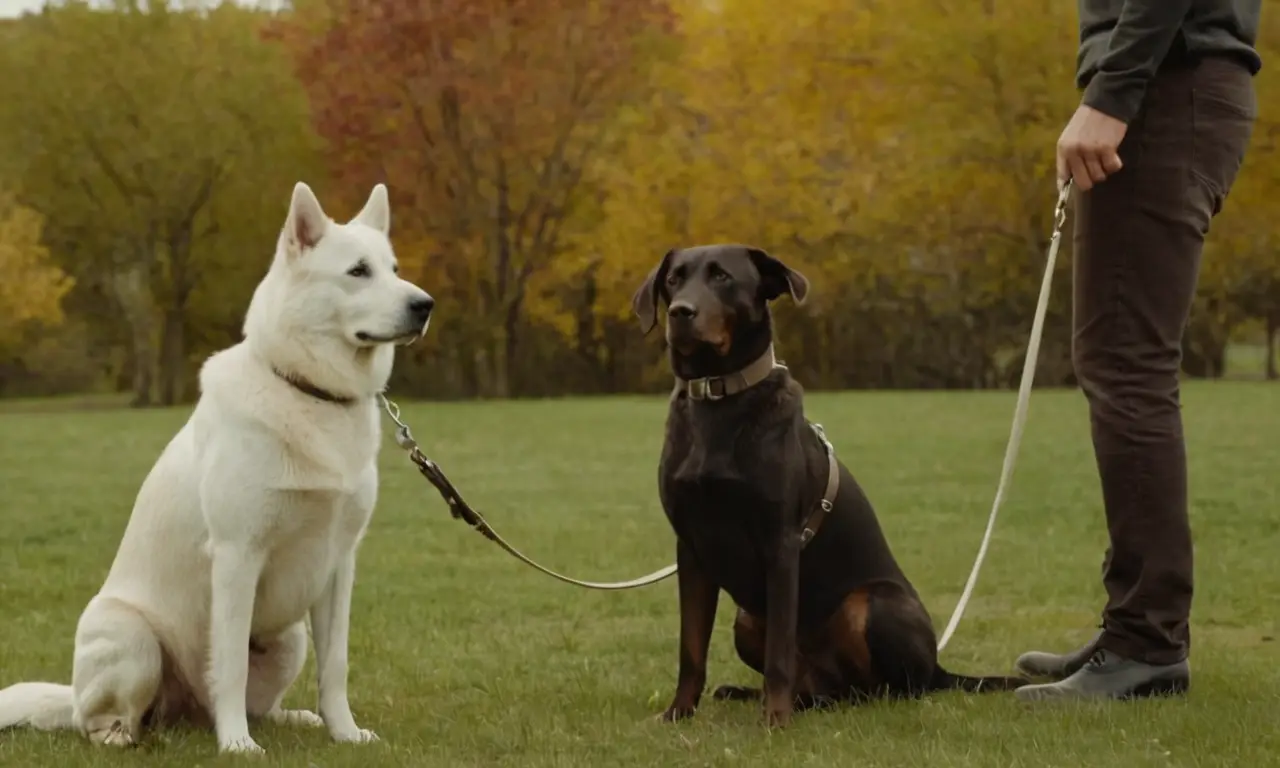
Dog Ownership Laws: How Many Owners Can a Dog Have?

How Many Owners Can a Dog Have? This is What the Law Says
The bond between humans and dogs is ancient and deeply cherished. Dogs are more than just pets; they are often considered members of the family. This profound connection naturally leads to questions about ownership, especially in complex situations. One such query that arises is: How many owners can a dog have? This is what the law says. While the concept of multiple owners for a single dog might seem unusual at first glance, the legal framework in many jurisdictions is more nuanced than a simple one-owner-per-dog rule. This article will delve into the legal intricacies surrounding dog ownership, exploring scenarios where multiple individuals might have legal rights or responsibilities towards a canine companion, and clarifying what the law generally dictates. We will examine concepts like co-ownership, joint responsibility, and the implications for legal standing, ensuring a comprehensive understanding of this often-overlooked aspect of pet law.
The General Rule: One Primary Owner
In the most straightforward and common scenario, a dog is considered to have one primary owner. This is the individual who is legally recognized as the dog's owner, responsible for its well-being, and holds the ultimate authority regarding its care, health, and any decisions concerning its life. This primary owner is typically the person who purchases the dog, registers it, and takes on the legal and financial obligations associated with pet ownership.
This singular ownership simplifies many legal matters. For instance, if the dog is lost or stolen, the primary owner is the one with the legal standing to report it and reclaim it. Similarly, if any legal issues arise concerning the dog, such as an incident of biting, the primary owner is usually the one held accountable. This clarity is essential for establishing responsibility and ensuring that the animal's welfare is consistently managed by a designated individual.
Exploring the Concept of Co-Ownership
While the single primary owner model is prevalent, the legal landscape does allow for, and in some instances, recognizes, the concept of co-ownership. Co-ownership occurs when two or more individuals share legal rights and responsibilities for a dog. This situation can arise in various contexts:
-
Married Couples or Domestic Partners: In many legal systems, property acquired during a marriage or domestic partnership is considered jointly owned. This can extend to pets, with both partners often sharing ownership rights and responsibilities unless there is a prenuptial agreement or other legal document specifying otherwise. This means both individuals have a legal say in decisions regarding the dog's care, veterinary treatment, and even what happens to the dog in the event of a separation or divorce.
-
Unmarried Couples or Roommates: While not automatically assumed as joint owners like married couples, unmarried individuals who jointly acquire and care for a dog can, through mutual agreement or implicit understanding, operate under a co-ownership arrangement. This is particularly common if both individuals contribute financially to the dog's upkeep, training, and veterinary expenses. However, without clear legal documentation, proving co-ownership in a dispute can be challenging.
-
Family Ownership: In some families, a dog might be considered a "family pet," with several members sharing a vested interest and responsibility. Legally, however, it is usually most practical for one individual to be designated as the primary owner, with others acting as secondary caretakers or contributing to the dog's well-being. If a formal co-ownership is desired, it would require explicit agreement and potentially legal documentation.
-
Breeding Arrangements: In the world of dog breeding, co-ownership agreements are quite common. A breeder might enter into a co-ownership agreement with a new owner for a show dog or a breeding prospect. Under such an agreement, the breeder retains some rights to the dog, such as breeding rights, while the new owner is responsible for the day-to-day care and training. These agreements are typically detailed legal contracts outlining the rights and responsibilities of each party.
Cat Feeding: How Many Times a Day Should Your Feline Eat?
Legal Implications of Co-Ownership
When a dog has multiple owners, the legal implications become more complex.
-
Decision-Making: All co-owners generally have a right to participate in decisions regarding the dog's welfare. This includes choices about veterinary care, diet, training methods, and where the dog will reside. Disagreements between co-owners can lead to legal disputes, especially in cases of separation or divorce.
-
Financial Responsibility: Co-owners are typically jointly and severally liable for the dog's expenses. This means that if one co-owner fails to pay their share of the vet bills, the other co-owners can be held responsible for the entire amount.
-
Termination of Ownership: If co-owners decide to part ways, determining the future of the dog can be difficult. Without a pre-existing agreement, legal intervention might be necessary to decide who retains ownership, or if the dog should be rehomed. This is where clear communication and legal agreements are crucial.
Joint Responsibility vs. Co-Ownership
It's important to distinguish between true co-ownership and situations where individuals share responsibility for a dog without holding equal legal ownership.
-
Shared Responsibility: A person might contribute financially to a dog's care, take it for walks, or provide temporary shelter, but this doesn't automatically make them a legal owner. For example, a grandparent who frequently helps care for their grandchild's dog might not be a co-owner in the eyes of the law. Their involvement is based on a personal relationship rather than a legal claim of ownership.
-
Guardianship vs. Ownership: Some animal welfare advocates and legal professionals advocate for a shift from "ownership" to "guardianship," emphasizing the animal's welfare and rights. While this perspective is gaining traction, current legal frameworks in most places still define pets as property, albeit with special considerations.
Scenarios Where Multiple "Owners" Might Be Involved
Beyond formal co-ownership, there are situations where multiple individuals might have a strong connection to a dog, leading to questions about their legal standing:
Dog Ownership Costs: The Real Price of Owning a Canine Companion-
Family Members as Caregivers: A family might collectively agree that "Fido" is a family dog. While Mom might be the registered owner, Dad, the children, and even grandparents might play significant roles in Fido's life, contributing to his care and well-being. Legally, however, only the registered owner holds the ultimate authority and responsibility. Other family members' involvement is typically based on familial consent and agreement.
-
Foster Parents: Foster parents provide temporary homes for dogs awaiting adoption. While they are deeply involved in the dog's care and rehabilitation, they do not hold legal ownership. The responsibility and ownership remain with the fostering organization or shelter until the dog is formally adopted by a permanent owner.
-
Professional Trainers or Handlers: Individuals who train or handle dogs professionally have a significant impact on the animal's life. However, unless they are formally designated as co-owners (as in some breeding scenarios), they do not hold legal ownership. Their role is contractual and based on providing a service.
Legal Documentation and Agreements
To avoid disputes and clarify roles, especially when multiple individuals are involved in a dog's life, legal documentation is highly recommended.
-
Co-Ownership Agreements: For situations involving unmarried couples, family members, or breeding partnerships, a written co-ownership agreement can be invaluable. This document should clearly outline:
- The names of all co-owners.
- The dog's identifying information (name, breed, microchip number).
- How expenses will be shared.
- The process for making decisions regarding the dog's health and care.
- What happens to the dog in case of separation, death, or disputes.
- Procedures for veterinary care authorization.
-
Last Will and Testament: In estate planning, individuals can make provisions for their pets. This can include appointing a guardian for the pet and allocating funds for its care. While not creating co-ownership, it ensures a responsible individual will care for the dog after the owner's passing.
What the Law Generally Dictates
In the absence of explicit co-ownership agreements or legal designations, most legal systems operate under the principle of one primary owner per dog. This owner is the one whose name appears on registration papers, vaccination records, and any other official documentation. This individual bears the ultimate legal responsibility for the dog's actions and welfare.
However, the law also recognizes that pets are not mere property in the same way as inanimate objects. Courts often consider the animal's best interests, especially in cases of divorce or separation involving jointly acquired pets. While a formal co-ownership agreement provides the clearest legal standing, judges may consider factors like who has historically provided the majority of care, who has a stronger bond with the animal, and the living situation of each party when making decisions about pet custody.
Boxer Dog Costs: Your Ultimate Financial GuideNavigating Disputes and Legal Advice
When disagreements arise concerning a dog with multiple involved individuals, seeking legal advice is crucial. An attorney specializing in animal law or family law can help navigate the complexities of pet ownership and responsibility. They can advise on:
- Establishing or refuting co-ownership.
- Drafting co-ownership agreements.
- Resolving disputes during separations or divorces.
- Understanding liability for the dog's actions.
In summary: Clarity is Key
So, to directly answer the question: How many owners can a dog have? This is what the law says. Legally, a dog is typically recognized as having one primary owner. However, the law does acknowledge and can accommodate situations of co-ownership, where two or more individuals share legal rights and responsibilities. This is most commonly seen with married couples but can extend to other arrangements through clear agreements. Without such agreements, disputes can arise, and courts will often consider various factors to determine the dog's best interests. Ultimately, for the well-being of the dog and to prevent potential legal entanglements, clarity regarding ownership and responsibilities is paramount. Whether through formal legal designation or well-defined agreements, ensuring everyone involved understands their role is essential for a harmonious life for both the humans and their canine companions. The evolving nature of our relationship with pets means that legal frameworks are also adapting, but for now, understanding the current legal standing of dog ownership, both singular and joint, is the most effective way to protect our beloved furry family members.






Related posts